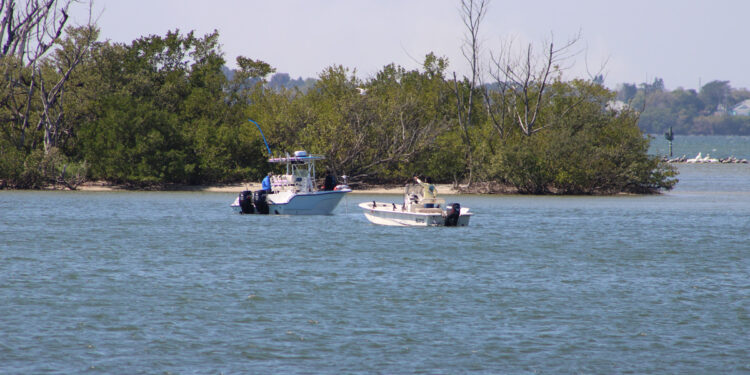The Florida Fish and Wildlife Conservation Commission (FWC) is participating in Operation Dry Water this weekend to increase awareness about the dangers of boating under the influence. The campaign, which happens yearly, aims to prevent alcohol- and drug-related boating accidents and deaths.
This year, the weekend of heightened awareness will be from July 1-3. FWC has been involved with Operation Dry Water since it started in 2009. Their goal is to protect lives, promote safe boating, enforce the law, and encourage responsible behavior on the water.
The Fourth of July holiday is one of the busiest times for boating. Florida, known as the “Boating Capital of the World” due to its more than a million registered recreational vessels, sees many people flocking to its waterways during this time.
It’s FWC and its partner agencies’ job to keep everyone safe. Last year, during Operation Dry Water, 93 people were removed from the water for boating under the influence.
Major Rob Beaton, the leader of FWC’s Boating and Waterways Section, emphasized their year-round dedication to handling impaired boating. “Safety and a positive boating experience are our top priorities. During the upcoming weekend and the holiday, we will be on high alert for any signs of boaters being under the influence,” he said.
In Florida, as in many places, operating a boat while under the influence of alcohol or drugs is illegal. The legal limit for blood alcohol content is .08, the same as for driving a car.
FWC advises all boaters to have a designated operator who stays sober. They also encourage wearing life jackets and taking a boating education course for everyone’s safety.
10 Tips for Safe Boating
Whether you’re a seasoned sailor or a novice boater, safety on the water is crucial. Here are ten tips for safe boating to ensure you, your crew, and fellow water-goers stay safe.
- Wear a life jacket: Half of all boating deaths are due to drowning, but prevention is simply wearing a life jacket. Make sure you choose the right fit and wear it whenever you’re out on the water.
- Be aware of your surroundings: Many boating accidents result from collisions due to the operator not paying attention. Keep a 360-degree lookout while operating a boat to prevent these incidents.
- Designate a sober driver: Around a quarter of all boating accidents involve alcohol or drugs. Operating a vessel under the influence is illegal, and you could be arrested. Celebrate after you’ve docked your boat or ensure you have a sober person to drive.
- Take a Boating Safety Course: Statistically, three-quarters of operators in fatal boating accidents lack formal education in boating. Everyone can benefit from a boating safety course regardless of whether it’s required.
- Check your safety gear: Ensure your boat has life jackets for all onboard. It would help if you also had a whistle or horn, and an emergency locator beacon is recommended. Depending on the vessel, you may also need lights, a fire extinguisher, and flares.
- File a Float Plan: Always let someone know where you’re going and when you plan to return. The faster rescuers can locate an overdue boater, the more likely they will have a positive outcome.
- Know Where You’re Going: Familiarize yourself with local boating speed zones and always maintain a safe speed for the current conditions.
- Watch the Weather: Weather conditions on the water can change rapidly. Always check the forecast before heading out and watch the sky closely for any changes.
- Stay with the boat: If your boat capsizes or there’s an accident, try to stay with the vessel. A boat is a more significant object that can be spotted in the water, even partially submerged.
- Know and follow the rules: Every boater should familiarize themselves with the regulations for their location. Whether operating a personal watercraft, skiing, diving, or snorkeling, knowing the rules is important.
Stay safe out there, and don’t hesitate to report boating







